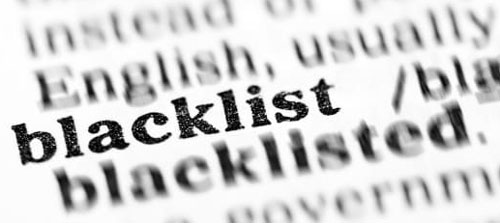by WorldTribune Staff, May 2, 2019
[Editors’ Note: This story has been updated. See below.]A George Soros-funded institution which anointed itself as the “world’s most influential school for journalists” has published a list of conservative news outlets which it has branded “UnNews”.
Poynter declared that nearly 30 conservative-leaning news outlets and organizations are “unreliable news websites.” It recommended that advertisers “who want to stop funding misinformation” should use the list.
 According to the Media Research Center, the Poynter report’s author, Barrett Golding, combined five major lists of websites marked “unreliable.” That result was a list of 515 names, including prominent conservative sites such as Breitbart, CNSNews.com, Daily Signal, Daily Wire, Drudge Report, Free Beacon, Judicial Watch, LifeNews, LifeSiteNews, LifeZette, LiveAction News, PJ Media, Project Veritas, Red State, The Blaze, Twitchy, and the Washington Examiner.
According to the Media Research Center, the Poynter report’s author, Barrett Golding, combined five major lists of websites marked “unreliable.” That result was a list of 515 names, including prominent conservative sites such as Breitbart, CNSNews.com, Daily Signal, Daily Wire, Drudge Report, Free Beacon, Judicial Watch, LifeNews, LifeSiteNews, LifeZette, LiveAction News, PJ Media, Project Veritas, Red State, The Blaze, Twitchy, and the Washington Examiner.
WorldTribune.com, The Washington Times, and National Review were not included on the list.
WorldTribune Editor Robert Morton said, “Other media bias rankings have found WorldTribune ‘factual’ but conservative. We are disappointed not to have been included on Poyntner’s list which also excluded the embarrassingly unreliable and factually-challenged corporate media.”
Poyntner stated that while marketers can create their own “blacklists,” those lists might be incomplete. Golding wrote that, “Advertisers don’t want to support publishers that might tar their brand with hate speech, falsehoods or some kinds of political messaging.”
Poynter is funded by Soros’s Open Society Foundations and the Omidyar Network. The two combined for “$1.3 million in grant funding.”
The Poynter board of trustees includes executives from The New York Times, ESPN, Harvard, Vox, CBS, ABC, and The Washington Post. Poynter also works with Facebook and Google on fact-checking programs.
Making the American Press Reliable Again: Free Press Foundation
The Poynter report marked sites as “unreliable,” “biased,” “clickbait,” or “fake.”
Breitbart, Alliance Defending Freedom, CNSNews.com, Project Veritas, and the Washington Examiner were all marked “unreliable.” Unreliable was defined as “websites that have posted deceptive content,” “sources that actively promote racism, misogyny, homophobia, and other forms of discrimination,” “sites that contain some fake news,” and “sources that may be reliable but whose contents require further verification.”
The Heritage Foundation’s The Daily Signal, Ben Shapiro’s The Daily Wire, Drudge Report, Free Beacon, Judicial Watch, LiveAction, Media Research Center, and PJ Media were tagged as “biased.” The tag was explained as “sources that come from a particular point of view and may rely on propaganda, decontextualized information, and opinions distorted as facts.”
LifeNews, LifeSiteNews, LifeZette, RedState, The Blaze, and Twitchy were marked as “clickbait.” This tag was defined as “sources that provide generally credible content, but use exaggerated, misleading, or questionable headlines, social media descriptions, and/or images.”
“The list clearly reflects the biases of the liberal organizations that compiled its component parts,” the Media Research Center’s Corinne Weaver wrote on May 2.
Poynter listed the organizations that contributed to the dataset in an attached document. These included FactCheck.org, Fake News Codex, MetaCert Protocol, OpenSources, Politifact, Snopes, and the disgraced Southern Poverty Law Center.
“Ultimately, the list and the agenda showed how far Poynter has fallen from its role as ‘the world’s most influential school for journalists’ to a far-left censor of conservatives online. You can call a Chevy Nova a Ferrari but it’s still a Chevy Nova,” Weaver wrote.
Update
Fox News reported on May 3 that Poynter has scrapped the list.
Poynter’s managing editor, Barbara Allen, posted a mea culpa on May 2 as backlash over the blacklist built, the report said.
“On Tuesday, April 30, Poynter posted a list of 515 ‘unreliable’ news websites, built from pre-existing databases compiled by journalists, fact-checkers and researchers around the country. Our aim was to provide a useful tool for readers to gauge the legitimacy of the information they were consuming,” Allen’s statement read.
“Soon after we published, we received complaints from those on the list and readers who objected to the inclusion of certain sites, and the exclusion of others. We began an audit to test the accuracy and veracity of the list, and while we feel that many of the sites did have a track record of publishing unreliable information, our review found weaknesses in the methodology.
“We detected inconsistencies between the findings of the original databases that were the sources for the list and our own rendering of the final report.”
It continued: “Therefore, we are removing this unreliable sites list until we are able to provide our audience a more consistent and rigorous set of criteria. The list was intended to be a starting place for readers and journalists to learn more about the veracity of websites that purported to offer news; it was not intended to be definitive or all encompassing.
“We regret that we failed to ensure that the data was rigorous before publication, and apologize for the confusion and agitation caused by its publication. We pledge to continue to hold ourselves to the highest standards.”
Your Intel Brief: Geostrategy-Direct __________ Fix The Media Now
